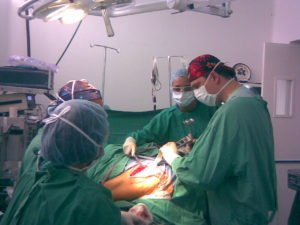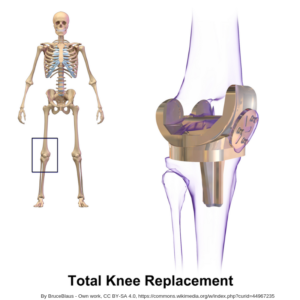 Among the things that annoy me, and the bar is unfortunately low, is hearing from people that they have received the diagnoses of having no cartilage and being “bone on bone”.
Among the things that annoy me, and the bar is unfortunately low, is hearing from people that they have received the diagnoses of having no cartilage and being “bone on bone”.
I hear it most often in relation to the knees and hips and is usually accompanied by the prescription of a joint replacement surgery.
At least this was the case for my brother, an otherwise healthy sixty-year-old man who could use to drop a few pounds.
I take a few things into consideration when a client (or sibling) reports this kind of exchange with a doctor.
- Did the doctor talk about or address why the person in question is bone on bone?
- Did the doctor asses the fitness level of the person in question in relation to their ability to recover successfully from a major surgery?
- Did the doctor suggests making changes to underlying movement patterns that have led to being bone on bone so that the new joint won’t suffer a similar fate?
- If the person in question is overweight, did the doctor explain to them that every extra ten pounds of weight that we carry is forty extra pounds of pressure on our joints?
Usually the answer to all four of those questions, and I could probably come up with some more, is a resounding no.
Is it good to have a body lacking cartilage that complains constantly of pain? Absolutely not.
But is it smart to have a joint replacement surgery, that you might not be ready for, and is a bigger deal than most surgeons let on (don’t get me started on C-sections)? Absolutely not.
And to be honest— my point isn’t to say, don’t have the surgery. Many people genuinely need and will be helped by having surgery.
My point is to be aware of your ability to have and recover from the surgery.
If you are out of shape and overweight it would be a good idea to get a handle on both of those things before going under the knife.
It is dicey when it comes to talking about weight because I am not looking to shame anyone, and to be honest there are different ways to carry weight. Someone who carries weight around their trunk (think a barrel) is better suited than someone who carries all their excess weight in their bellies. The weight bears down on the bones differently.
But the ratio of 40lbs of pressure for every 10lbs of weight still applies.
If you are out of shape it is equally concerning. The surgery itself will mess with your muscle tone even if you have a ton of it. And if you aren’t strong before going in it will make recovery much more difficult.
Finally, what led you here in the first place? If we have worn away our cartilage it is because we walk and stand in a way that leads to this degeneration.
In my brother’s case (the suggestion was knee replacement) I wouldn’t be surprised if it was from a life-time of hyperextension of the knees. I can guess this because it is the inner knee cartilage that is gone and we are a family of hyperextenders.
I asked my brother if the doctor or subsequent physical therapist addressed his posture of movement patterns. Needless to say, they didn’t. The doc referred him to physical therapy and the therapist gave him the standard sheet of knee exercises.
I had three knee surgeries of my own back in the day when I knew not of what I speak, and while I don’t regret them, I think I could have avoided two of the three with a better understanding of what got me there and what would help me recover.
In closing, when a doctor tells you that you are in a bone on bone situation when it comes to your cartilage, focus on your ability to recover successfully when deciding if the surgery is the right move.

